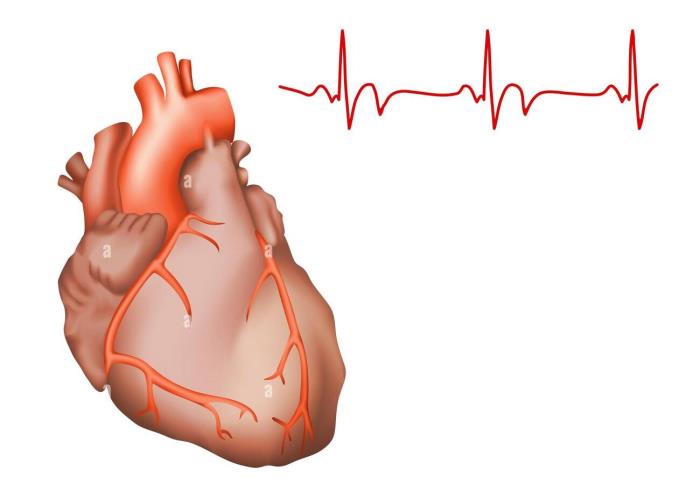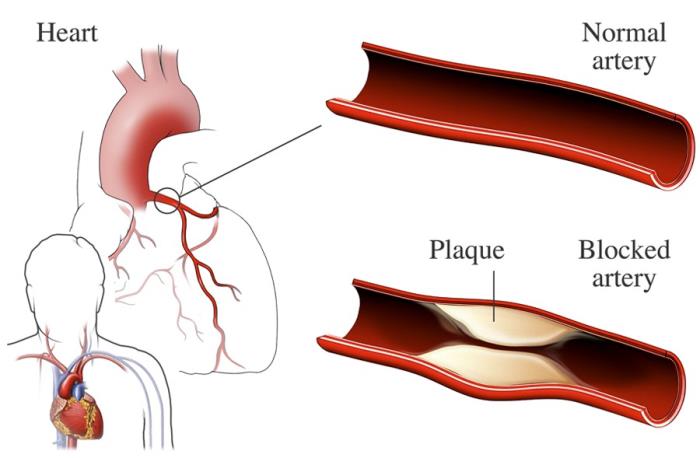Heart rhythm disorders, also known as arrhythmias, occur when the electrical impulses that control the heart’s beating are irregular or disrupted. These disorders can result in a heart that beats too fast, too slow, or irregularly. Depending on the severity and type of arrhythmia, symptoms can range from mild palpitations to life-threatening situations. One of the most common treatments for certain types of heart rhythm disorders is the implantation of a pacemaker, a small device designed to regulate the heart’s rhythm.
What Is a Pacemaker and How Does It Help?
A pacemaker is a small, battery-powered device implanted under the skin near the collarbone. It helps control abnormal heart rhythms by sending electrical impulses to the heart when it beats too slowly or irregularly. The device consists of a pulse generator, which produces the electrical impulses, and leads (wires) that are connected to the heart. Pacemakers are primarily used to treat bradycardia, a condition where the heart beats too slowly, and other rhythm disorders that do not resolve on their own.
Common Types of Heart Rhythm Disorders
Heart rhythm disorders can be broadly categorized into two types: tachycardias (when the heart beats too fast) and bradycardias (when the heart beats too slowly). Tachycardias can result from abnormal electrical activity in the upper or lower chambers of the heart, leading to rapid heartbeats. Bradycardias, on the other hand, occur when the heart's natural pacemaker fails to send signals at the correct rate, causing a slow heart rate. Both types of arrhythmias can lead to reduced blood flow to the body and brain, causing symptoms ranging from mild palpitations to severe dizziness, fainting, or even sudden cardiac arrest.

Causes of Bradycardia: When the Heart Beats Too Slowly
Bradycardia is a condition where the heart beats slower than normal, typically defined as a heart rate under 60 beats per minute. While athletes and individuals in good physical condition may naturally have lower heart rates, bradycardia can also be caused by various factors, including aging, heart disease, and damage to the heart’s electrical system. Conditions such as high blood pressure, heart attacks, or congenital heart defects can impair the heart’s ability to maintain a normal rhythm. For some patients, bradycardia may lead to insufficient blood flow, causing dizziness, fatigue, and fainting.
Atrial Fibrillation and Pacemaker Need
Atrial fibrillation (AFib) is one of the most common types of arrhythmias, characterized by rapid, irregular heartbeats in the upper chambers of the heart (the atria). While AFib typically causes the heart to beat too fast, it can also lead to episodes of bradycardia, especially in cases where medication or other treatments are used to control the heart rate. In some individuals with AFib, the heart’s electrical signals become disorganized, leading to both fast and slow heart rates. In these cases, a pacemaker may be used to regulate the heart’s rhythm and prevent the heart from beating too slowly during periods of bradycardia.
Sick Sinus Syndrome: A Common Cause of Arrhythmias
Sick sinus syndrome (SSS) refers to a collection of symptoms related to malfunctioning of the sinus node, the heart’s natural pacemaker. In SSS, the sinus node fails to regulate the heart's rhythm properly, leading to periods of very slow heartbeats (bradycardia) or irregular heartbeats. Over time, this can lead to symptoms like dizziness, fainting, and shortness of breath. Pacemakers are often the treatment of choice for individuals with sick sinus syndrome, as they help to maintain a normal heart rate and prevent symptoms associated with slow or irregular heartbeats.
Heart Block: Different Degrees and Pacemaker Requirements
Heart block is a condition where the electrical signals traveling through the heart are delayed or blocked. This can occur at different levels of the heart’s conduction system, leading to different degrees of heart block. In first-degree heart block, the delay is typically mild and may not require treatment. However, in second-degree and third-degree (complete) heart block, the blockage is more severe, and the heart may not beat fast enough to maintain adequate circulation. In such cases, a pacemaker is often necessary to restore normal heart rhythm. The pacemaker provides electrical impulses to the heart to compensate for the blocked signals, ensuring the heart continues to beat at a normal rate and preventing symptoms like fainting or dizziness.
Role of Aging in Heart Rhythm Disorders
As people age, the likelihood of experiencing heart rhythm disorders increases. Age-related changes, such as natural degeneration of the heart’s electrical conduction system, can contribute to arrhythmias. These changes may lead to slower or irregular heartbeats, often necessitating closer monitoring and, in some cases, pacemaker intervention.
Genetic Factors Contributing to Arrhythmias
Genetic factors play a significant role in certain arrhythmias, with some heart rhythm disorders being inherited. Mutations in genes responsible for the heart's electrical pathways can increase the risk of conditions like long QT syndrome, Brugada syndrome, and familial atrial fibrillation. Understanding genetic predispositions can aid in early diagnosis and targeted treatment strategies.
Coronary Artery Disease and Its Impact on Heart Rhythm
Coronary artery disease (CAD) reduces blood flow to the heart muscle, which can disrupt the heart’s electrical system and lead to arrhythmias. Blockages in coronary arteries can trigger events like ventricular fibrillation or sudden cardiac arrest, making rhythm management a critical aspect of CAD care.

Cardiomyopathy: How Heart Muscle Disease Affects Rhythm
Cardiomyopathy, a disease of the heart muscle, can alter the heart’s shape and function, affecting its ability to maintain a regular rhythm. Both dilated and hypertrophic cardiomyopathy may lead to arrhythmias due to changes in the heart's structure, sometimes necessitating treatment with antiarrhythmic medications or devices like pacemakers.
Myocardial Infarction (Heart Attack) and Arrhythmia Risk
A myocardial infarction, or heart attack, damages part of the heart muscle, which can disrupt the heart’s normal rhythm. This damage may result in an increased risk of arrhythmias, particularly ventricular fibrillation or atrial fibrillation, in the aftermath of a heart attack.
Medication-Induced Arrhythmias and When to Consider a Pacemaker
Certain medications, including beta-blockers, antiarrhythmics, and even some antibiotics, can cause arrhythmias as a side effect. When medication-induced arrhythmias persist or severely impact heart function, a pacemaker may be considered to stabilize heart rhythm and mitigate these side effects.
Electrolyte Imbalance as a Cause of Irregular Heartbeats
Electrolytes like potassium, calcium, and magnesium are essential for maintaining a healthy heartbeat. Imbalances can lead to arrhythmias by disrupting the heart’s electrical signals. Prompt correction of electrolyte imbalances is often effective, but severe cases may require additional intervention.
Congenital Heart Conditions Leading to Rhythm Disorders
Some individuals are born with heart abnormalities that can predispose them to rhythm disorders. Congenital conditions like atrial septal defects or Ebstein's anomaly can interfere with normal electrical signaling in the heart, making arrhythmia monitoring and treatment essential for long-term health.
Inflammatory Heart Conditions Like Myocarditis
Myocarditis, or inflammation of the heart muscle, often results from viral infections and can lead to rhythm disorders. Inflammation can damage heart tissue and disrupt electrical pathways, increasing the risk of irregular heartbeats.
Lifestyle Factors Increasing the Risk of Arrhythmias
Lifestyle choices, such as smoking, excessive alcohol consumption, high caffeine intake, and chronic stress, can all contribute to arrhythmias. These factors may aggravate existing conditions or trigger new rhythm issues, underscoring the importance of a heart-healthy lifestyle.
The Importance of Early Diagnosis for Heart Rhythm Disorders
Early diagnosis of heart rhythm disorders is crucial for preventing more severe complications, such as stroke or heart failure. Diagnostic tools like electrocardiograms (ECG), Holter monitors, and stress tests can help identify arrhythmias early, leading to timely intervention.
When Is a Pacemaker the Right Solution?
A pacemaker is generally recommended when arrhythmias cause symptoms such as dizziness, fainting, or severe fatigue. It is also considered when other treatments, like medication, have not been effective. For some patients, a pacemaker can dramatically improve quality of life by providing a stable heart rhythm.
The Importance of a Pre-Surgery Evaluation for Pacemaker Candidates
Learn about the importance of pre-surgery evaluations for pacemaker candidates. This section highlights the critical assessments and tests necessary to determine the suitability of a patient for pacemaker implantation.
Understanding Pacemaker Battery Life and Replacement
Understand the battery life of a pacemaker and when it needs replacement. This section explains how long pacemaker batteries typically last and the process involved in replacing them to ensure continuous functionality.
Conclusion: Managing Heart Rhythm Disorders for Better Health
Effective management of heart rhythm disorders involves understanding the underlying causes, whether genetic, age-related, or lifestyle-induced. With early diagnosis, personalized treatment, and lifestyle adjustments, patients can often lead healthier lives. In cases where rhythm disorders disrupt normal heart function, options like medication, lifestyle changes, and pacemaker implantation offer effective solutions.
Best Pacemaker Implantation Surgery in India
The Best Pacemaker Implantation Surgery in India offers a life-saving solution for patients with irregular heartbeats, helping to regulate heart rhythm and improve overall health.
Best Pacemaker Implantation Surgeons in India
The Best Pacemaker Implantation Surgeons in India are experienced in cardiac device implantation, delivering personalized care to help patients manage heart rhythm issues effectively.
FAQ
What are common causes of heart rhythm disorders?
Arrhythmias can result from aging, genetic predispositions, structural heart issues, electrolyte imbalances, lifestyle factors, and some medications.
How do heart rhythm disorders lead to the need for a pacemaker?
When arrhythmias cause slow or irregular heartbeats that cannot be controlled through medication, a pacemaker may be implanted to regulate the heart’s rhythm.
Can lifestyle factors cause heart rhythm problems?
Yes, factors like smoking, excessive alcohol or caffeine intake, and high stress can all contribute to heart rhythm issues.
Is a pacemaker needed for all types of arrhythmias?
No, pacemakers are typically only used for severe arrhythmias that significantly impact quality of life and are unresponsive to other treatments.
How does aging impact the risk of needing a pacemaker?
Aging can cause natural degeneration in the heart's electrical conduction system, increasing the risk of arrhythmias and, in some cases, necessitating a pacemaker.